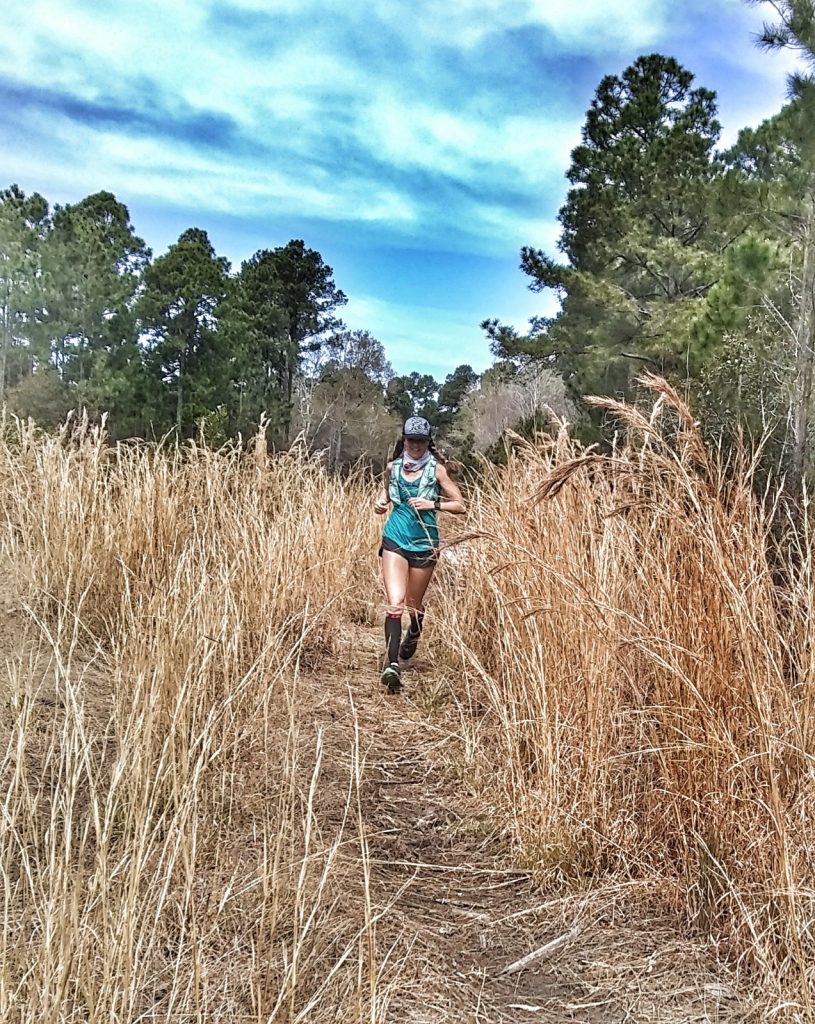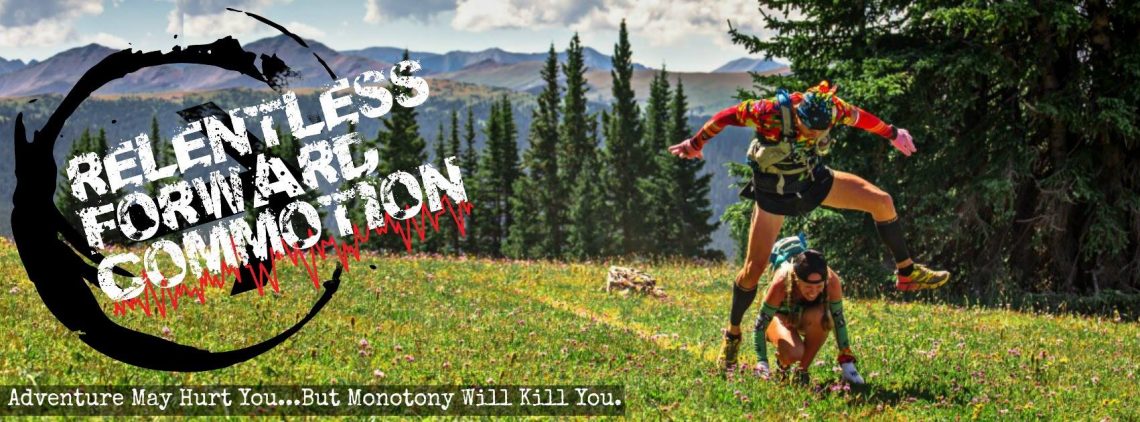Last Updated on August 30, 2024 by Heather Hart, ACSM EP, CSCS
Recently, a phone call conversation with a client revealed that one of her more pressing concerns about her upcoming 100 mile ultramarathon wasn’t necessarily finishing the ultra, but the potential onset of the post race blues after the race was over.
To some, it may seem odd to be concerned about feelings of sadness or depression during a time when one should be celebrating a huge accomplishment, but runners who have been there before understand it. Post race depression is very real, and is a common occurrence among endurance athletes.

Imagine this: you’ve been day dreaming of completing a goal race for months, maybe even years. You finally get the opportunity (or the courage) to sign up, and the excitement only grows. From there, you dive head first into a training plan. For months it almost feels as if you eat, sleep, and breathe training, sacrificing all of your free time to make sure you are ready for the race.
Race day arrives, and the experience is as incredible as you hoped it would be. You reach the finish line and you are on cloud nine, celebrating the accomplishment you dreamt of for so long. Every time you think of what you just accomplished, you feel a surge of pride!
Eventually, maybe the next day or the next week, you realize the thing you have spent so much emotional and physical effort getting ready for is over. This can feel like a very noticeable and very real void in your life, and with that void comes a lot of unexpected emotions.
You may feel a sense of grief, or even identity loss.
You might start to feel disinterested in running, and struggle to get out the door for a workout, or you may lose motivation to exercise at all.
You might start to feel a little sluggish, tired, lethargic.
You may feel a little down, even mildly depressed or anxious (especially if you use running to combat these feelings in the first place.)
You’ve got the post race blues.
What Exactly are the Post Race Blues, and Why Do They Happen?
To truly understand what is going on within our bodies and brains when we experience the post race blues (and to prove they are more than simply a dramatic term invented by a bunch of runners who love nothing more than talking about running) I reached out to a few mental health experts, who conveniently also happen to be runners.
Neurochemical Shift
When we run, our bodies release a number of hormones and neurotransmitters that send signals to our brains. Two specific neurotransmitters that are often credited for the feeling of euphoria, or the “runners high” include dopamine (which is involved in motivation and reward-seeking behavior) and serotonin (which is involved in stabilizing mood).
When there is a significant drop in training volume after a big race, there will also be a significant drop in the number of these neurotransmitters being released into your blood stream, and that shift is often noticeable.
“Many runners may even become reliant on exercise because of the ‘feel good’ effects and euphoria they can create” explains Cassie Orr Nevins, LCSW, a licensed sports social worker and running coach.
“After all, we refer to them as ‘happy’ hormones and chemicals in the mental health world. For runners who may struggle with depressive disorders this could trigger a depressive episode or mimic one, when we are not releasing them naturally. “

Shift in Goals
“At the end of a long training cycle, there’s this sudden shift in goals- you’ve put in all this work and spent all this time training for this one event, and now suddenly you’re left with ample spare time” explains Leah Barnes, a Licensed Clinical Mental Health Counselor Supervisor and ultra runner based in North Carolina.
“Any adjustment we have as humans is likely to have a mental and emotional impact on us. Even for positive events (think a new job you’re excited about, a move, a wedding, etc), our brains take time to adjust to new expectations and routines, and it is fairly common to have some ‘down’ emotions during those transitions. “
Identity Loss or Grief
Runners are notorious for having their identities wrapped up in the sport of running. When there is no longer a running goal ahead of them, or they simply aren’t running as much as they are used to, they may begin to feel a loss of that identity.
“Many runners find a sense of purpose in striving to finish a race, aiming for a new PR, or completing a new distance” says Gillian Koch, M.Ed., LPCC, licensed clinical counselor and running coach. “Mourning the loss of that sense of purpose and/or not knowing what to aim towards next can be legitimately tough – this grief is valid.”
Further, if you’ve been training with someone else or a training group, there is often a social disconnect once you aren’t training anymore, even if it’s for the relatively brief 1-2 week recovery period, explains Barnes.
How to Beat the Post Race Blues:
The good news is, this “blah” feeling doesn’t have to last forever. Here are seven tried and true tips to help you move past the post race blues.
1. Focus on Recovery
A lot of athletes tend to struggle with the downtime in the days or weeks following a big event because they have become so accustomed to regular (and time consuming) training. This abrupt halt in training volume in the days following a race not only feels foreign, but it can feel like you’re regressing as an athlete, which may contribute to feelings of depression and restlessness.
(I get it, most of us have a hard time sitting still).
I challenge all of the athletes I coach to reframe their thoughts surrounding post race recovery. Instead of seeing it as frustrating or “wasted time”, runners should view post race recovery as a very integral part of your overall training strategy (because, spoiler alert: IT IS an integral part of your overall training.)
When you truly understand how important recovery is, it can become another fun piece of training to focus on, which may help fight off those “lack of purpose” feelings that often accompany post race blues.
Bonus tip: low impact active recovery such as walking, swimming, or easy cycling may also help stave off the post race blues by giving you that much desired boost of dopamine and serotonin that typically accompanies your regular running workouts.
Nevins reminds us: “It only takes 20-30 minutes per day for endorphins to become elevated. While duration and intensity do lead to a greater release, you can get some benefits of light to moderate activity at lower intensities while recovering.”

2. Take Time to Nurture Other Aspects of your Identity
Marathon training is time consuming. Ultramarathon training? Even more so. Even those who are super skilled in time management may still have to sacrifice hobbies or other things they enjoy in order to ensure those miles are checked off of the training plan.
There is so much more to each and everyone one of us than simply running. Post race is the perfect time to nurture all of those other aspects of what makes you, YOU.
“My suggestion to athletes is to also have a post race plan that includes activities that align with your values and allows you to express other aspects of yourself in the off season.”
3. Change your Training Focus
If you’ve already put in your recovery time, and you are still having a hard time finding the motivation to lace up your running shoes and getting out the door, consider not lacing them up at all.
That’s right, I said it: consider NOT running for a while, and instead explore another movement-based focus to help build or maintain your fitness.
Perhaps its riding a bike. Maybe you’ve always wanted to give rock climbing a try, or want to take Olympic lifting lessons. How about getting back to (or getting started with) regular yoga practice. Find something new and exciting to focus on, particularly one that gets your body moving and lights a fire in your soul.

4. Sign Up for Another Race
Admit it, you’ve already been thinking about it. It’s OK, I’ve never met a single “one and done” runner; it’s easy to get hooked on finish lines. And not much on this green earth beats the high of hitting that “register” button on a race’s website.
So give yourself another goal, and prepare to occupy all of your free time once again with an elaborate, detailed training calendar.
(Do yourself a favor though, and take a little time off to recover before diving back into heavy training. It’s not only important for your body, but helps prevent training burnout.)
5. Find Another Way to Love Running
One thing I’ve learned over the last two decades is that running comes in all shapes, sizes, flavors, and colors. A Boston Marathon qualifying time is not the end-all-be-all of running. Nor is a 100 mile ultramarathon belt buckle.
Hell, racing in general is optional.
There are so many different types of running and racing, the possibilities are endless. So if the idea of training for another race turns you off of running completely at the moment, try to rediscover why you fell in love with running in the first place.
Join a new running group, or maybe revisit one you haven’t run with in a long time. Hit up a new trail, or log miles in a new neighborhood. Go on a running “sightseeing” tour through a local park. Leave your GPS at home, and run based on feel – not pace or miles run. Give back to the sport you love so much by volunteering at a race to help other runners reach their goals.
6. Surround Yourself with the Endurance Community
Spend your time with people who not only understand your love for running, but likely understand what it feels like to experience the post race blues. Let these people lift you up with their own experiences of how they got past these negative emotions, and hold you while you are experiencing these feelings yourself.
Further, these are the people that will GLADLY listen to you ramble on and on about your most recent race accomplishments, and will never get bored talking about things like race day nutrition, race course port-a-potty horror stories, negative splits, unexpected toenail loss, and other seemingly mundane to the rest of the non-running world topics.
Sometimes, being able to surround yourself with like-minded people will encourage the high of your recent race to linger, helping combat the post race blues.
7. Talk to a Professional
If you’re struggling with the post race blues, consider reaching out to a professional. This especially applies to runners who may be more prone to having symptoms of depression or have an existing mental health concern.
A runner should seek expert help if any of the following apply:
- Daily functioning becomes difficult or avoided (this includes eating, sleeping, completing work tasks, concentrating at work or school, getting out of bed, socializing with loved ones, etc.)
- Suicidal thoughts or thoughts of self-harm occur
- Feelings of helplessness, hopelessness, or of “being a burden” occur
- Substance use increases
- A friend, family member, or colleague expresses concern
- Significant increase in fights with family members or friends
- Loss of pleasure in other activities that used to bring them joy
- Changes in sleeping or eating patterns (especially after their body has had a chance to recover from the race if it was longer, like a 100 miler where sleep is likely to be disrupted during the race).
If your depressive symptoms become severe or you begin to have suicidal thoughts, call or text 988 to reach the National Crisis Line where you can get immediate, free, and confidential support. You will be connected to a crisis counselor who can help you identify local resources to support you.
A crisis doesn’t have to just be suicidal thoughts, Nevins reminds us, but can be overwhelming self harm urges, substance use, or difficult emotions that are not subsiding on their own or while traditional coping skills.
“I also encourage runners to consider reaching out to a therapist if they have any curiosity or interest in doing so – you don’t need to be in a dark place to be in therapy!” encourages Koch. “If you have questions or feelings you’d like professional support working through, we are here to help.”
Heather Hart is an ACSM certified Exercise Physiologist, NSCA Certified Strength and Conditioning Specialist (CSCS), UESCA certified Ultrarunning Coach, RRCA certified Running Coach, co-founder of Hart Strength and Endurance Coaching, and creator of this site, Relentless Forward Commotion. She is a mom of two teen boys, and has been running and racing distances of 5K to 100+ miles for over a decade. Heather has been writing and encouraging others to find a love for fitness and movement since 2009.

Leave a Reply